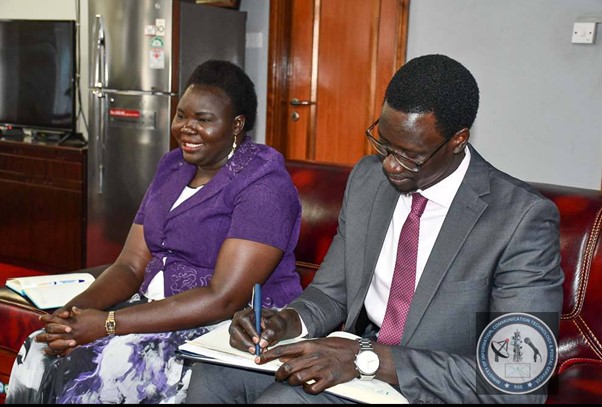By Lodu William Odiya
The Association for Media Development in South Sudan (AMDISS) has formally apologized to media professionals for what it called a “slip of the tongue” statement aired on the South Sudan Broadcasting Corporation (SSBC).
The apology follows a statement made by AMDISS Director, Aya Irene Lokang, during a Thursday meeting at the Ministry of Information, Communication, Technology and Postal Services. She had asserted:
“Observing through the court proceeding since the court started, we have seen cases of challenges from the media side, that is from the journalist’s side… We have seen cases of lack of professionalism, and South Sudanese journalists have never had training in court reporting.”
This remark quickly sparked widespread condemnation within the journalistic community, with some critics demanding accountability and an immediate apology. The criticism was heightened by the fact that the current presiding judge at the special court, Justice James Alala, has taught media law and ethics for many years at the Media Development Institute (MDI), which is run by AMDISS.
In a statement issued yesterday, AMDISS stressed that Lokang’s comment was not intended to undermine the professionalism of journalists.
“We wish to emphasize that the statement made on air was a slip of the tongue and was not intended to undermine the professionalism, dedication, or courage of journalists covering these important proceeding,” the statement read in part.
AMDISS explained that its investigation into a recent incident involving the unauthorized circulation of a leaked court audio recording led it to recognize a need to strengthen training and ethical standards in court reporting.
“We stress that this isolated incident should not be generalized to all journalists covering the proceeding,” the statement added.
During the meeting, Ms. Lokang announced that AMDISS is planning a three-day training program for journalists on court reporting, scheduled for November 11-13. An expert from Kenya will lead the training, sharing best practices, co-facilitated by South Sudanese legal experts who will cover local legal proceedings and court terminology.
AMDISS also highlighted positive points raised, including an appeal to the government to grant journalists full access to report on the ongoing court proceedings.
Silvia Aya, Assistant Director for One Citizen Network for Democracy (OCND), weighed in, emphasizing that media-led organizations like AMDISS should focus on advocating for a conducive environment for journalists.
OCND, a youth-led organization focusing on democracy, human rights, and good governance, called on media platforms and partners to carry out training.
“Mistakes are everywhere at the professional level, but journalists should be given the space to carry out their work because learning is a process,” she underscored.




